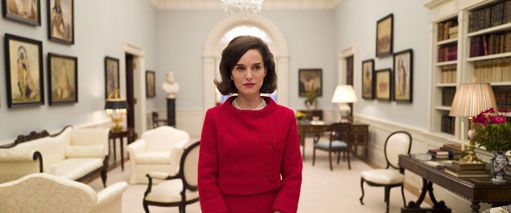Film Review: Jackie
Camelot Is Born In Media-Savvy Biopic About Jfk’s Grieving Widow


maybe I’ll marry an Onassis.”
Latest Article|September 3, 2020|Free
::Making Grown Men Cry Since 1992


maybe I’ll marry an Onassis.”